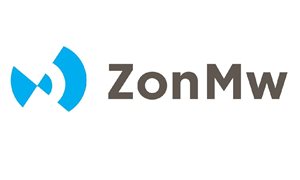
Myotonic dystrophy type 1 (DM1) is a neuromuscular disorder affecting multiple organ systems and is characterized by a variety of clinical presentations (e.g. muscle weakness, fatigue, gastrointestinal complaints, cognitive symptoms). The phenomenon of anticipation (increase of repeat expansion) leads to an earlier and more severe phenotype in subsequent generations. Early-onset cataract (EOC) is defined as cataract with an onset before the age of 50. It is a common, measurable manifestation of the late or adult-onset type of DM1. However, this symptom is not always recognized as a manifestation of DM1, causing a delay in diagnosis.
Ilse Karnebeek, nurse practitioner performed a qualitative study to obtain insight in patients’ experiences and reflections of diagnostic delay and the support needs of DM1 patient with EOC. The research group (including Fran Smulders and Eline Boon and, led by Nicol Voermans, associate professor of Neurology), published the results in Neuromuscular Disorders on October 1, 2022.
Eight semi-structured interviews were held with purposive recruited participants. Concluding that all participants experienced physical and/or psychosocial symptoms prior to diagnosis, including the EOC, which could have been explained by a DM1 diagnosis. Participants with (grand)children born during this diagnostic delay, felt that they were denied a choice regarding family planning. This resulted in feelings of grief, guilt, anger since at that time no further investigation was conducted regarding the cause of the EOC.
EOC is a warning sign for DM1 and if recognized, could decrease diagnostic delay and prevent the birth of children with a more severe form of DM1 and thereby emotional and psychosocial consequences. Ophthalmologists have a crucial role in diagnosing the disease and therefore awareness should be increased regarding this specific symptom for early diagnosis.
Related news items

Remember the good times
20 December 2022Depressed patients automatically recall negative events and information easier than positive things. We call this a negative memory bias. Training positive memory to counter this negative bias is a promising e-MentalHealth method to alleviate depression.
go to page
Joint research in regional hospitals New research projects from promotion fund
22 November 2022Four research projects have been honored in the promotion fund of the Radboudumc and four regional hospitals. The research projects, which are a collaboration between CWZ, Jeroen Bosch Hospital, Rijnstate, Sint Maartenskliniek and the Radboudumc will receive a contribution of 240,000 euros.
go to page
A new perspective on ADHD Strengths and positive aspects in a qualitative study
22 November 2022Research in ADHD almost exclusively focusses on negative aspects of ADHD. This study showed that people with ADHD also experience a broad range of positive aspects related to their ADHD. The results were published in Frontiers of Psychiatry.
go to page


